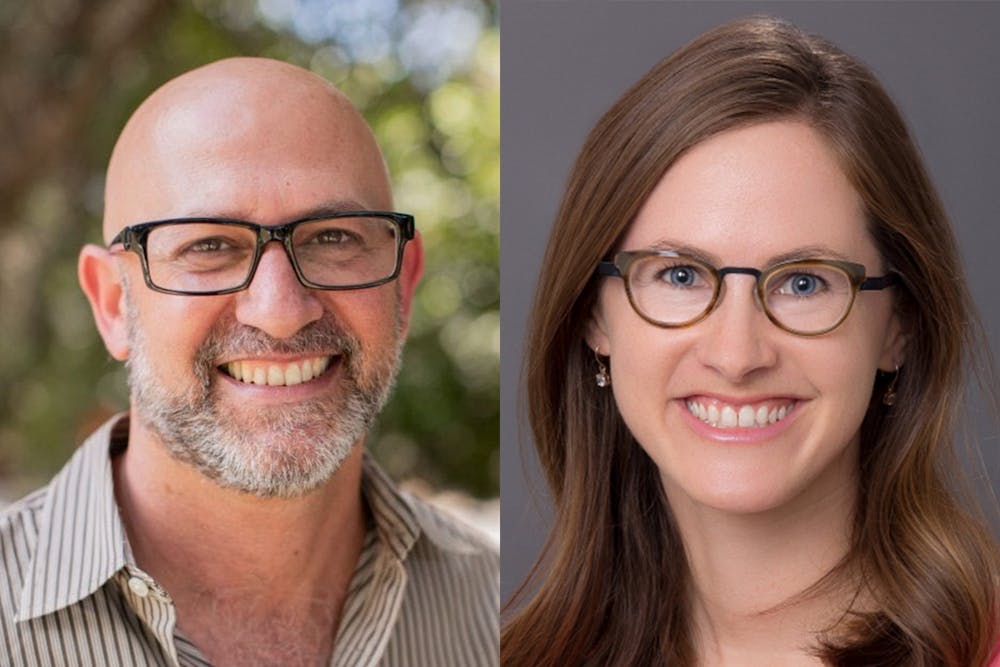
Penn professors Dorothy Kronick (right) and Guy Grossman found that community policing did not decrease crime rates in the Global South.
Political science professors at Penn, along with researchers across the globe, found that community policing practices did not reduce crime or improve trust in policing in communities in the Global South.
The Nov. 26 study was conducted by Penn professors Dorothy Kronick and Guy Grossman, who collaborated with researchers from around the world. The team worked with police organizations in Brazil, Colombia, Liberia, Pakistan, the Philippines, and Uganda to study community policing initiatives that reached nine million people in 516 areas across the six countries. Researchers interviewed 18,382 citizens and 874 police officers and obtained data on crime from local police.
Community policing, an approach developed in the 20th century, focuses on developing relationships with community members to improve interactions between civilians and police and to reduce crime, Penn Today reported.
According to the researchers, increased community policing results in "no improvements in citizen-police trust, no greater citizen cooperation with the police, and no reduction in crime" in the six areas despite its apparent successes in the Global North.
According to the Royal Geographical Society, the concept of a Global North and Global South is used to describe a grouping of countries that share socio-economic characteristics. The Global South refers to lower income, developing countries in contrast to the higher income, developed countries in the Global North.
Kronick worked on the Columbian site while Grossman worked in Uganda. The two professors partnered with the Penn Development Research Initiative, which brings together faculty and graduate students whose research seeks to identify solutions to the challenges facing developing countries.
The Global South was at the forefront of researchers' minds because the current political climate has placed more attention on the relationship between communities and law and order.
"We’re at this moment of a global crisis in policing in the wake of George Floyd’s killing and police killings in other countries. We’ve seen hundreds of thousands if not millions of people around the world come out to protest the police," Kronick told Penn Today. "Understandably, that makes both governments and police agencies want to do something to fix these problems."
Kronick told Penn Today that the takeaway from the study is not to shy away from community policing but to show that results in the Global North may not translate to the same results in the Global South. Grossman corroborated this sentiment, saying that community policing is just one of many solutions to current issues with policing.
"For community policing to have the intended benefits, a lot needs to take place. Police need to devote a lot more resources, there needs to be more top-down supervision and there needs to be more engagement on the side of the community, especially in places that start from a low base of trust in the police," Grossman told Penn Today.
The Daily Pennsylvanian is an independent, student-run newspaper. Please consider making a donation to support the coverage that shapes the University. Your generosity ensures a future of strong journalism at Penn.
Donate






